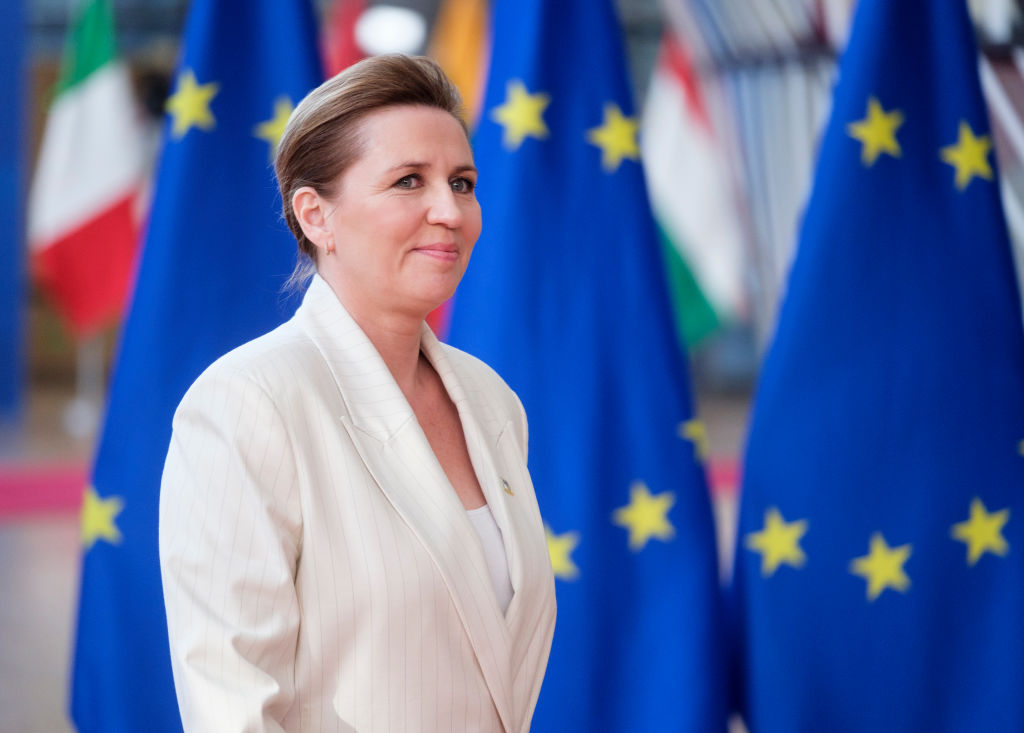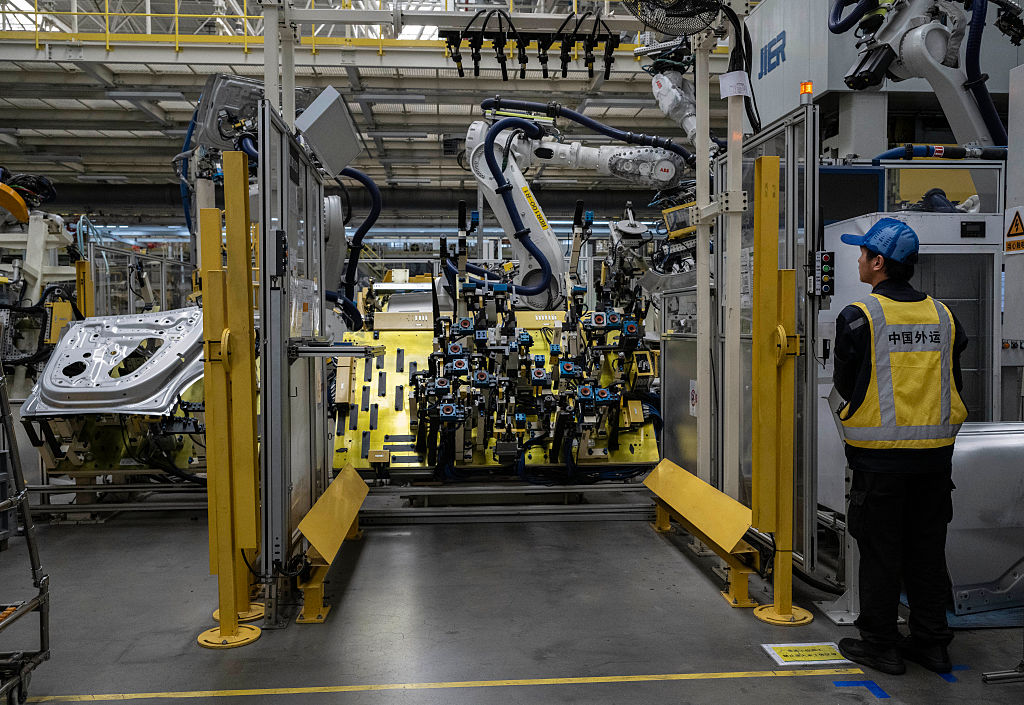It was a historic moment. Friday’s Anchorage summit between Russian leader Vladimir V. Putin and US President Donald J. Trump was the first between the heads of the two nuclear superpowers in four years. The meeting had a streak of surrealism to it. Overtaken by bellicist hubris, the Western press has long assured us that Russia had been defeated in Ukraine; that the implosion of the Russian regime, and perhaps even of the Russian state, was at hand; that Putin, as the great villain of our day, had been utterly ‘isolated’ as the ‘pariah’ he had become.
Instead, Putin was welcomed on US soil with full military honours, his plane escorted by United States Air Force F-35s. Putin was given a welcome befitting what he is, whether one likes it—and him—or not: The leader of one the world’s great powers. Meanwhile, the Europeans weren’t even invited to join the talks. The symbolism is hard to miss.
You don’t need to be a historian to remember that time when Trump’s hapless predecessor, Joe R. Biden, pompously announced the the Russian ruble ‘had turned into rubble’, or that other time when the European Commission pretend “Foreign Minister”, Josep Borrell, boisterously rejected diplomacy and said that the Ukrainian war would be resolved “on the battlefield”. Well, as it would appear, it now has. Not as the warmongering Eurocrats had hoped, but as the much maligned realists warned it would: With Ukraine destroyed, defeated, and begging for a ceasefire, and with Russia in control of far more territory than it would have if the path of diplomacy had been taken earlier.
By every indication, the Anchorage negotiations were a major step forward. Both sides characterised them as such, with Russia’s Defence Minister Andrei Belousov saying the talks were ‘excellent’. Kirill Dmitriev, the Kiev-born head of Russia’s sovereign investment fund to whom Putin has entrusted the process of rapprochement with Washington, said the negotiations had gone ‘incredibly well’. Indeed, the two presidents held a press conference after the discussions in which both said as much. In a post-talks interview with Sean Hannity, Trump announced a deal was close, but that it would be ultimately up to Zelensky to accept or reject it.
Much of what was actually discussed by the two leaders, of course, remains enshrouded in secret. Putin’s main demands, though, are well known and long-lasting: That whatever deal now made should be final rather than just a provisional ceasefire, as requested by Ukrainian President Volodymyr Zelensky; that Kiev’s forces abandon the territory they still control in the four oblasts now annexed by Moscow and recognise them as Russian; that Ukraine bans anti-Russian groups and political parties (this is what the Russians would call ‘denazification’); that Ukraine restores the rights of the banned Ukrainian Orthodox Church and declares Russian to be an official language of the country; that it demilitarises, placing constraints on the size and equipment of its armed forces; that it federalises, transferring power away from Kiev and into the regions; and that it formally relinquishes its ambitions to join NATO. As far as can be ascertained, the Russian President abandoned a number of minor points from this wish list. Reports claim that Putin has now told Trump that he would be satisfied with the Ukrainian army evacuating solely Donetsk and Lugansk, with the frontline in neighbouring Kherson and Zaporizhzia frozen. The pre-deal, as discussed between Russians and Americans, was received with acrimony in Kyiv, with one high-ranking Ukrainian official reportedly describing it to the Financial Times as a ‘stab in the back’.
While it is understandable that this arrangement will disappoint both the Ukrainian leadership and those Europeans long drunk on the Kool-Aid of a Ukrainian victory, there should be no doubt in anybody’s mind that the accord negotiated by Trump is the best Kyiv can realistically hope to get. Indeed, given current battlefield trends, whatever territory the Ukrainians cede voluntarily will be taken by Moscow anyway—at best, for Kyiv, by early 2026. Bitter as this may be, it is still highly advantageous to the Ukrainians, whose army, Russia’s Chief of Staff Gerasimov reportedly believes, may implode in just a few months.
What Trump’s deal does for Ukraine is put an end to the war as Kyiv’s situation becomes desperate. In so doing, Washington is seeking to save Ukraine from the rising likelihood of a complete, unconditional surrender that would compromise the very existence of an independent Ukrainian state and, crucially, potentially allow the Russians to move their border hundreds of kilometres to the west. Between a painful peace that preserves Ukrainian statehood and a complete Russian victory, it is clear what scenario best suits Ukrainian, European, and American interests.
It is nothing short of remarkable, therefore, that the Europeans are so committed to sabotaging Trump’s promising peace initiative. Instead of seeing it as the last minute miracle that may yet allow them to close the war without the humiliation of seeing the Russian army marching on Odessa or even Kyiv, the Eurocrats are hard at work trying to convince Zelensky to continue a conflict that is certain to end in catastrophic defeat for him.
Seeking to shield him from Trump’s pressure, they have now put together a caravan consisting of German Chancellor Merz, Commission President von der Leyen, French President Macron, Italian Prime Minister Meloni, together with a number of other, less relevant heads of state of government who are to travel to Washington for a psychological support team of sorts. In Poland, the globalist regime of Donald Tusk seems particularly frenetic. Sikorski, his Foreign Minister and likely successor, told TVN24 that, “We will tell Zelensky that we will do what we have done so far: Supply weapons, support, and provide a path to EU membership. Ukraine itself must decide whether it wants to continue the fight.” In a joint communiqué, they have also said that Ukraine’s territorial integrity must be upheld (meaning no territorial concessions to Moscow), that there can be no reduction of Ukraine’s military, and that Kyiv must retain the right to join NATO. They’re telling Kyiv to ignore Trump, close its eyes to the military reality, and continue the fight.
Zelensky, unfortunately, is listening to this drivel. He has already proclaimed, reacting to the Anchorage summit, that to cede land would be impossible due to the country’s constitution—as if the outcome of armed conflicts is not decided by the balance of power on the battlefield, but by the judges of the defeated power’s constitutional court. Ukraine will continue to demand a temporary ceasefire rather than a lasting peace deal, as demanded by Trump and Putin alike; and it appears that Kyiv is even intent on continuing to demand war reparations of anywhere between $200 billion to $1 trillion from Russian coffers. Naturally, with Putin’s army holding the initiative at the front and the Kremlin feeling confident that total victory is at hand, none of these requests is serious.
Much of Europe’s coming decades will be decided this August—in Zelensky’s meeting with Trump in Washington, and in the weeks ahead. If the stubborn and utterly inept European establishment manages to derail the Trump-brokered peace deal, the consequences will be immense. Whether it carries on for another three, six, or twelve months, every reasonable observer can see how the war will end unless stopped by means of diplomacy—in the subjugation of Ukraine and the transformation of the European balance of power in ways unseen for many decades. Should this occur, anti-Russian, bellicist hysteria in Europe will produce exactly what it seeks to avoid—an immeasurably more powerful and angry Russia, potentially sharing a border with Romania, Moldova, and perhaps even Hungary, hegemonic in the Black Sea, and reinforced by the military, economic, and demographic resources of a defeated Ukraine.
Instead, the European leadership must now find in itself the courage to look at reality as it is. Trump will not be dissuaded from some form of rapprochement with Moscow—the US understands, correctly, that in the new disposition of the global chessboard Russia, and by extension Europe, are of secondary importance; that it is China and East Asia that must be Washington’s primary concern; and that disentangling Russia from China is a crucial US foreign policy objective. They will, therefore, attempt to court Moscow, minimise the points of friction with it, and close the Ukraine war chapter. The Americans will not abandon this goal at Kyiv’s, Brussels’, or London’s insistence—not, certainly, when Europe’s share of the global GDP has fallen to almost half of America’s and the continent is weaker, poorer, and more devoid of cards than at any moment in half a millennium. However bitter, peace in Ukraine is in Europe’s fundamental interest. Brussels should stop sabotaging it.





If Europeans are shocked by Trump’s move on Ukraine, they do not understand the man